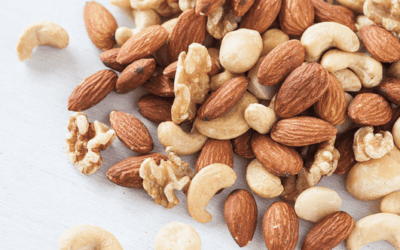Although it may seem like a radical change for some, there are many reasons to seriously consider switching to this lifestyle. In this article, we explore the vegetarian diet benefits and highlight why it could be an attractive option for anyone.
The benefits of a vegetarian diet
Health and well-being
One of the most obvious reasons to adopt a vegetarian diet is health. A well-balanced vegetarian diet provides all the essential nutrients while reducing saturated fat and cholesterol intake. Health benefits include lowering the risk of cardiovascular disease, high blood pressure, type 2 diabetes and certain types of cancer.
A vegetarian diet can also support weight loss or better weight management. Plant-based foods are usually lower in calories than animal products and are rich in fiber, which promotes satiety. This is particularly appealing for anyone who wants to maintain a healthy and active lifestyle.
Environmental sustainability
People who care about the planet are increasingly adopting sustainable practices. A vegetarian diet aligns perfectly with these values. The meat industry is a major source of greenhouse gas emissions and deforestation. By reducing the demand for meat products, a vegetarian diet helps lower the carbon footprint.
Vegetarian diets also generally require less water and less land than meat-based diets. This helps preserve natural resources and fight environmental degradation.
Respect for animal ethics
Animal welfare has become a growing concern worldwide. Choosing a vegetarian diet is an important ethical step. Reducing the consumption of animal products lowers the demand for intensive farming practices that are often cruel.
Dietary diversity
A vegetarian diet is not about deprivation. On the contrary, it offers a wide variety of delicious and nutritious food options.
Beyond fruits and vegetables that form the core of this diet, nuts and seeds bring additional nutritional benefits. Pumpkin seeds, sunflower seeds, almonds, walnuts, hazelnuts and pistachios are rich in healthy fats such as omega 3 and omega 9, as well as fiber, vitamins and minerals.
They are also easy to enjoy as snacks at work or on the go. If you are looking for a healthy and satisfying snack to add to your vegetarian diet, nuts and seeds are perfect allies.
Changing your eating habits can also introduce you to new foods, flavors and recipes. For some, adopting a vegetarian diet may mean stepping out of their comfort zone, but it is the perfect opportunity to try lesser-known but equally nutritious ingredients.
Adaptability to individual needs
A vegetarian diet can be adapted to a variety of individual needs. Whether for religious, medical or personal reasons, vegetarianism offers a solution that fits most dietary restrictions.
Are there disadvantages to a vegetarian diet?
Although a vegetarian diet has many benefits, you should be mindful of potential nutritional shortfalls. For example, not eating meat may lead to lower protein intake, so it is important to include other protein-rich foods in your meals. Eggs, lentils, nuts and tofu are excellent options.
Some may also think that vegetarians often eat the same dishes. In reality, there is a wide range of healthy and nutritious foods that fit perfectly into this diet.
Conclusion
Adopting a vegetarian diet has many advantages, whether for health, environmental sustainability, animal ethics or dietary diversity.
It is important to note that the transition to a vegetarian diet can be gradual and tailored to individual needs. Take it step by step, at your own pace.
In the end, embracing a vegetarian diet is a positive choice for health, the planet and animal welfare. It is a step toward a healthier and more sustainable future for all.
Published on 28/09/2023












